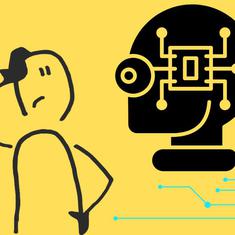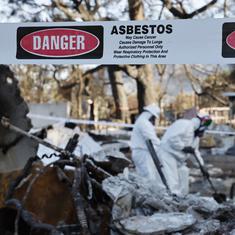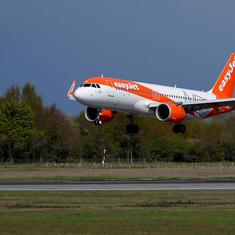I&B minister vows to expose surveys portraying bad image of press freedom in India
On World Press Freedom Day, Prakash Javadekar said the media in India ‘enjoys absolute freedom’.

Union Information and Broadcasting Minister Prakash Javadekar on Sunday claimed the media in India “enjoys absolute freedom” and that he “will expose those surveys that tend to portray a bad picture about press freedom” in the country.
May 3 is celebrated as World Press Freedom Day. Last month, India found itself two positions lower in the latest press freedom index. India is ranked at the 142nd position out of 180 countries.
The Bharatiya Janata Party leader added that the media has the power to inform and enlighten people.
Media has the power to inform and enlighten people. Media in India enjoy absolute freedom. We will expose, sooner than later, those surveys that tend to portray bad picture about "Freedom of Press" in India.#WorldPressFreedomDay
— Prakash Javadekar (@PrakashJavdekar) May 3, 2020
BJP President JP Nadda said the press played a great role in the nation by shaping opinions and creating awareness. “On this World Press Day, I salute our media persons for risking their lives to make public aware of various aspects of COVID-19,” he wrote on Twitter.
Press is the 4th pillar of our democracy & plays a great role in the nation by shaping opinions and creating awareness. On this #WorldPressDay, I salute our media persons for risking their lives to make public aware of various aspects of COVID-19.
— Jagat Prakash Nadda (@JPNadda) May 3, 2020
The Congress alleged that the ruling party was hell bent on destroying the fourth pillar of democracy. “As we commemorate World Press Freedom Day, we must remember that the BJP is hell bent on destroying this fourth pillar of democracy and we shouldn’t let that happen.” In its message, the Opposition party asked journalists to “not be scared”.
India slipped two places in World Press Freedom Index to 142. As we commemorate #WorldPressFreedomDay, we must remember that the BJP is hell bent on destroying this fourth pillar of democracy and we shouldn't let that happen.
— Congress (@INCIndia) May 3, 2020
To all the journalists we would say, Daro Mat. pic.twitter.com/JThPf1gTUI
Media freedom in India
On May 1, the Special Task Force of the Uttar Pradesh Police interrogated a journalist for reporting on low-quality personal protective equipment kits being supplied to hospitals and colleges in the state, Newslaundry reported.
Last week, Zubair Ahmed, a freelance journalist in Andaman was arrested for allegedly posting a tweet about coronavirus, The Print reported. While the police said he was arrested for posting an “inciting, false and instigating tweet”, Ahmed said he had just asked “uncomfortable questions”.
Meanwhile, in April, the police in Jammu and Kashmir had charged freelance photographer Masrat Zahra under the Unlawful Activities Prevention Act for allegedly uploading posts that glorify “anti-national activities” on social media. The Hindu reporter Peerzada Ashiq was also summoned by the police for reporting on the claims of the families of deceased militants in Baramulla who said they were allowed to travel to collect the bodies, though permission was later rescinded. The Editors Guild of India had expressed “shock and concern” over the actions of law enforcement agencies in Jammu and Kashmir in dealing with the two journalists.
The Uttar Pradesh Police had last month registered a first information report against the editor of news website The Wire’s Founding Editor Siddharth Varadarajan for allegedly spreading fake news about Chief Minister Adityanath. The state government later served a notice to Varadarajan during the nation-wide lockdown to appear in Ayodhya on April 14.
Before the coronavirus outbreak too, there have been several instances when the media was clamped down on. In March, the government had banned two Malayalam news channels – Asianet News and Media One – for 48 hours for their coverage of the violence that broke out North East Delhi. In its orders, the Ministry of Information and Broadcasting said the two channels appeared to have covered the violence on February 25 in a manner that “highlighted the attack on places of worship and siding towards a particular community”. February 25 was the third day of the clashes.









